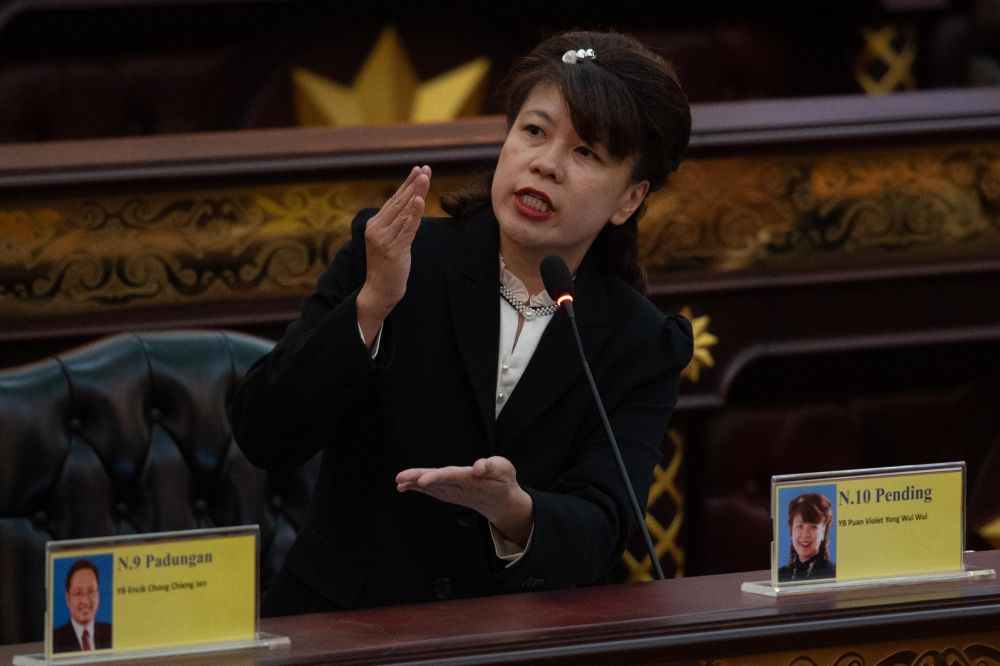
PETRA JAYA: Pending assemblywoman Violet Yong expressed her firm objection to the Dewan Undangan Negeri (Composition of Membership) Bill, 2025, which seeks to raise the number of state assembly seats in Sarawak from 82 to 99.
Speaking during the debate in the Sarawak Legislative Assembly, Yong described the proposed increase as “untimely, unnecessary, and lacking public justification,” particularly at a time when many Sarawakians are still grappling with fundamental issues such as rising living costs, inadequate infrastructure, and limited access to basic services in both rural and urban areas.
“This proposal does not reflect the actual needs of the people,” Yong said. “What Sarawakians are asking for are fairer policies, more efficient governance, and stronger representation especially at the national level not more elected representatives.”
Yong highlighted that Sarawak has already undergone five previous rounds of seat increases which were in 1969, 1985, 1995, 2005, and 2015 and noted a trend in which most newly created seats were concentrated in rural or semi-rural areas. She expressed concern that the latest proposal follows the same pattern, with preliminary indications suggesting that a majority of the new seats may be allocated to areas already politically aligned with the ruling coalition.
While acknowledging the significant growth in the number of registered voters rising from about 1.14 million in 2015 to more than 2 million in 2025, Yong pointed out that this growth has been largely concentrated in urban and semi-urban areas. Yet, she argued, these areas remain underrepresented compared to rural constituencies.
“Urban constituencies such as Pending, Batu Lintang, and Kota Sentosa often have three to four times more voters than many rural seats,” she said. “This disparity undermines the democratic principle of ‘one person, one vote.’”
Yong also questioned the lack of public consultation prior to tabling the Bill, stating that there had been no referendum, open forums, or independent studies conducted to gauge public opinion on the matter.
On the issue of financial implications, she raised concerns about the additional costs required to support 17 new assembly members, including salaries, staffing, and operational expenses. “These funds could be better channelled into improving rural schools, health clinics, and infrastructure,” she remarked.
She also questioned the practice of assembly members holding multiple posts and drawing dual salaries, citing it as an area in need of review to ensure responsible use of public funds.
Addressing a broader concern, Yong urged the state government to prioritise efforts to increase Sarawak’s parliamentary representation, in line with the Malaysia Agreement 1963 (MA63). She pointed out that despite Sarawak having five federal ministers, there has been little visible advocacy in Parliament for more parliamentary seats for the state.
“If we are serious about strengthening Sarawak’s voice, we should focus on correcting the imbalance at the federal level first,” she said.
Before concluding her speech, Yong also raised a constituency-specific concern regarding polling station accessibility for elderly voters. She appealed to the Election Commission (SPR) to ensure that voting streams for senior citizens are placed on the ground floor in future elections to enable safer and more dignified access.
“The right to vote must be protected and made accessible for all, especially for our senior citizens,” she added.
She added that by stating that she could not support the Bill in its current form, as it fails to address the deeper structural and representational challenges facing Sarawak.
By Connie Chieng